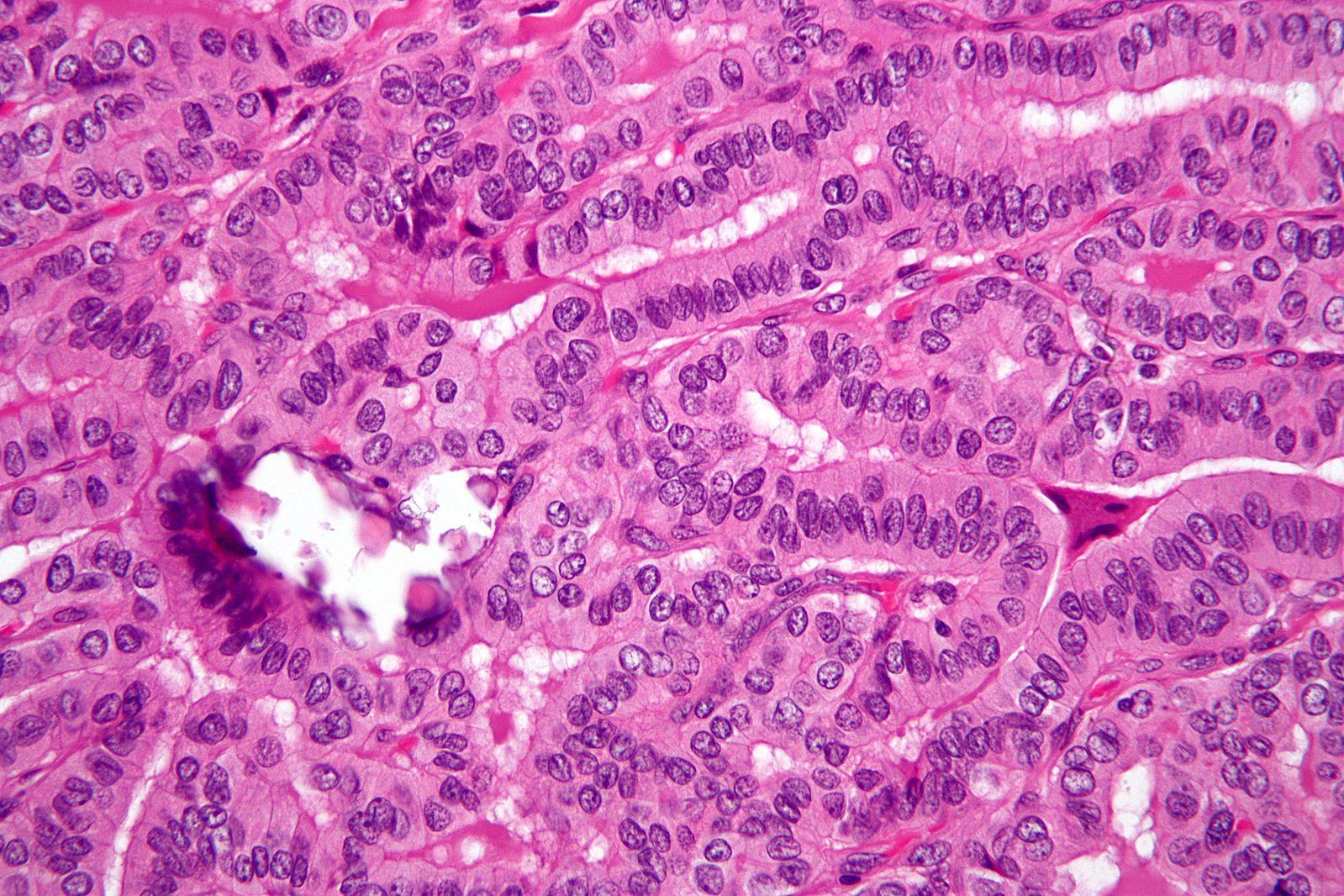9/11 thyroid cancer is one of the ten most common 9/11-related cancers. The incidence rate of 9/11 thyroid cancer is 300% higher than what is seen in the general population. Is this disparity due to over-diagnosis & misdiagnosis, or is it a fact that 9/11 toxin exposure at the Ground Zero site causes 9/11 thyroid cancer? A recent study concluded that thyroid cancer seen in September 11 first responders is caused by 9/11-toxin exposure.
The World Trade Center Health Program (WTCHP) provides free medication, monitoring, and treatment to individuals who were exposed to toxins while working as first responders after the September 11 Attacks. Established by the James Zadroga 9/11 Health and Compensation Act, this coverage extends to those who were living in Lower Manhattan at the time of the attacks. Those who worked at the Office of the Chief Medical Examiner and in temporary morgues are also covered. Workers who traveled along debris removal routes are also covered. Garage Workers who rehabilitated and maintained contaminated vehicles are covered by the WTCHP as well. The World Trade Center Health Program has identified a list of covered conditions that are causally related to 9/11-toxin exposure at the Ground Zero Site and related sites.
The rate of thyroid cancer among 9/11 first responders who spent time at Ground Zero on or after September 11, 2001, is three times higher (300% more) than the general population.
The rate of thyroid cancer among 9/11 first responders who spent time at Ground Zero on or after September 11, 2001, is three times higher (300% more) than the general population. The extreme disparity between 9/11 first responder thyroid cancer and thyroid cancer experienced by the general population has received attention in the medical community. The stark difference in rates between the two groups was examined in a recently published article in the International Journal of Environmental Research and Public Health.
Prior to this study, the reason for this elevated rate of 9/11 thyroid cancer among 9/11 responders was not clear. Some in the medical community felt that the disparity was due to over-diagnosis because 9/11 responders are subject to regular medical surveillance through the WTCHP. The theory was that WTCHP medical providers are acutely aware that those who come in for regular screenings have been exposed to potentially harmful dust and debris and may prefer to err on the side of caution when determining their patient’s diagnosis as 9/11 thyroid cancer. This creates a wider range of treatment options for patients to rely on and doctors to deploy.
The study relied on a new method to identify cancer biomarkers developed by the São Paulo Research Foundation (FAPESP) in conjunction with Johns Hopkins University School of Medicine. The researchers applied this method to determine whether the WTCHP was identifying false positives for 9/11 thyroid cancer.
This study debunked previous assumptions that attributed the higher incidence rate in first responders to over-diagnoses or incorrect diagnoses. The study found that these increased diagnoses of 9/11 thyroid cancer were in fact malignant tumors in WTCHP patients, not simply doctors erring on the side of caution or making mistakes. The researchers came to this conclusion by obtaining cancer tissue samples from 9/11 WTC responders and clinical information retrieved from their pathology reports. A pathologist then reviewed each sample to ensure that cancer tissue actually was present. Each 9/11 WTC responder’s data was then matched with an individual of the same age, gender and histology, but who had no known WTC exposure. These counterparts were used as controls for the experiment. A previously determined panel of biomarkers was then used to distinguish between benign and malignant tumors to determine if over-diagnoses had occurred. The study detected antibodies indicative of a malignant tumor present in each 9/11 patient evaluated. Misdiagnosis of thyroid cancer was determined to be an invalid explanation for the high incidence rate of thyroid among 9/11 WTC responders. Not only did these responders test positive for the cancer, they tested positive far more often than their non-responder counterparts.
This study should mollify concerns of WTCHP over-diagnosis or misdiagnosis of 9/11 thyroid cancer by the World Trade Center Health Program. It should help prove that regular monitoring for 9/11 related conditions, such as thyroid cancer, can result in positive prognosis. Although the program has resulted in the discovery of higher rates of thyroid cancer among responders, early detection can lead to life-saving treatment and ultimately remission. Regular surveillance likely leads to early detection, which better prepares both doctors and patients to handle treatment. The earlier the detection, the better the odds of getting to remission. By being proactive, doctors are better equipped to combat thyroid cancer when it is first detected. This also puts patients in the best position to beat the illness and ultimately return to their normal every-day lives.
The WTCHP was implemented as a proactive measure for those who are not sick and a helpful measure for those who are. This study confirms the efficacy of the WTCHP’s methods in monitoring the health of WTC responders because it has uncovered a prominent illness that it can now screen for in future enrollees. The health program instills how important it is for all those exposed to the aftermath of the September 11 Attacks to take advantage of the WTCHP and monitor for potential 9/11-related illnesses.
This blog post is co-authored by Emma Theis and Thomas Hart.



